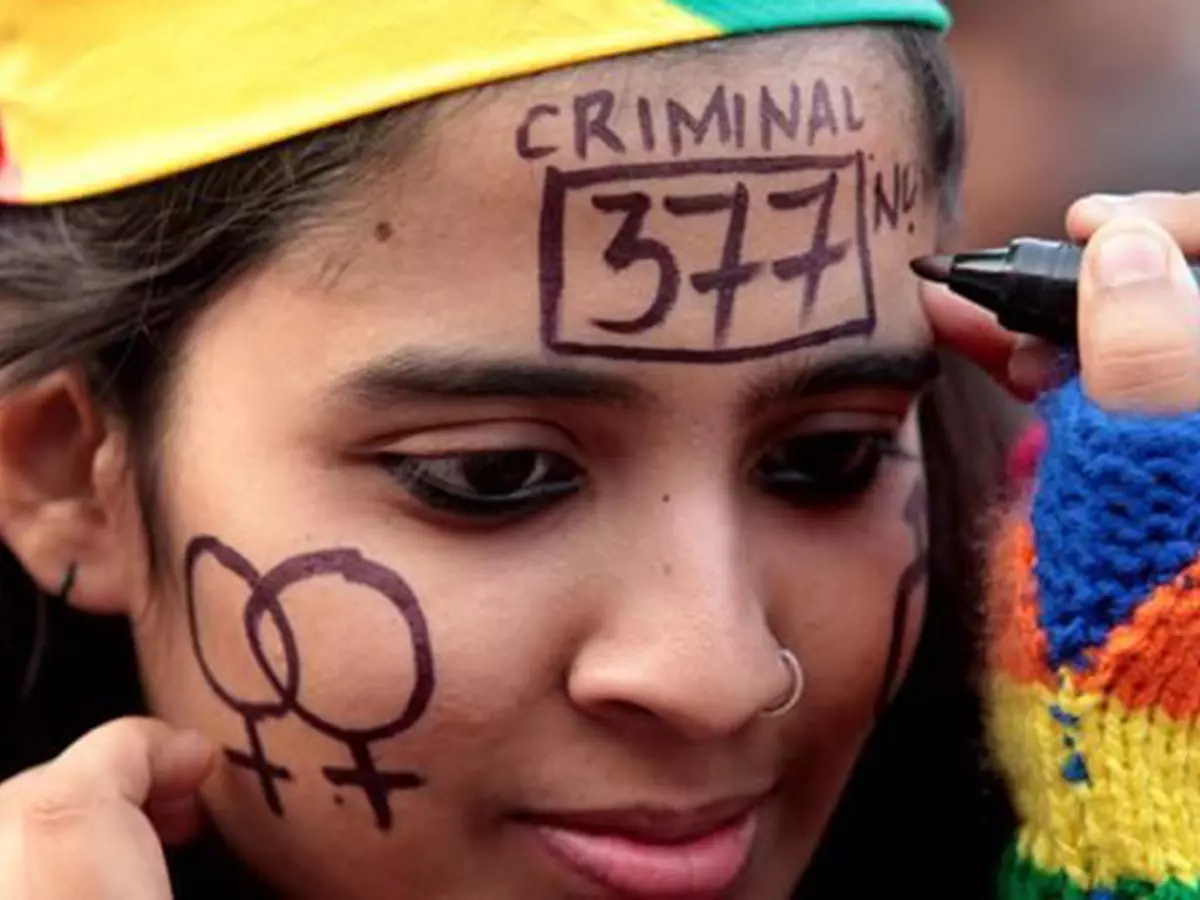The Next Step For LGBTQ Rights In India - Scrap Or Amend Section 377 From The Constitution
After the unexpected decision of the Supreme Court in Suresh Kumar Koushal v Naz Foundation where it recriminalised homosexuality efforts have increased to either amend or scrap Section 377 from the Constitution. The most stringent opposition to homosexuality comes not from the legal or political circles but from the society where it is still frowned upon. The LGBT community has taken a number of steps to spread awareness about same-sex couples a...Read More

After the unexpected decision of the Supreme Court in Suresh Kumar Koushal v. Naz Foundation, where it recriminalised homosexuality, efforts have increased to either amend or scrap Section 377 from the Constitution. It is conceded even by members of the ruling dispensation that Section 377 violates the right to equality and right not to be discriminated on the basis of sex as well as right to life and liberty as enshrined in the constitution. Some of the steps taken in this regard are enumerated below.

business-standard
Rights of Transgender Persons Bill, 2014
On April 24, 2015, The Rajya Sabha unanimously passed the Rights of Transgender Persons Bill, 2014, which provides for reservation in education and jobs, financial aid and social inclusion for transgenders. It is rare for any house of the parliament to pass a private member¡¯s bill, and this particular bill, moved by DMK¡¯s Tiruchi Siva, became the first bill in 45 years to be passed in the Rajya Sabha. The Government has also assured to bring an updated bill in the Lok Sabha after removing some technical anomalies.
Curative Petition on Sec 377 in Supreme Court

HT
The Supreme Court is currently hearing oral submissions on a curative petition filed against its judgment recriminalising homosexuality. It is rare for the judges to hear oral submissions on a curative petition, and decisions on such petitions are taken usually after the judges confer with each other. However, this departure from practice is being seen as an acknowledgment by the apex court of the changing social realities. It is to be noted that the curative petition against Sec 377 is the last legal resort for the petitioners to get any relief on this issue.
Medical Opinion
Medical Opinion in India has undergone a radical change since the days when arguments were repeatedly advanced claiming homosexuality to be a disease that can be cured. The Indian Psychiatrists Association, in a statement released in February 2014, said that there is no evidence to substantiate the claim that homosexuality is a mental illness or a disease. Earlier in 2011, in representations before the Supreme Court, the Vice President of the Indian Medical Association submitted that homosexuality is not a disease or mental illness.
Emerging Political Consensus

reuters
In view of international developments with regard to the issue of homosexuality, political consensus in India is also slowly building up. From Arun Jaitley of the BJP to P. Chidambaram of the Congress, political leaders have expressed their opinions supporting homosexuality. The RSS too has climbed down from its earlier position of vehement opposition to the decriminalisation of homosexuality to maintaining ambiguity on the issue. The Aam Aadmi Party and the CPI(M) have outrightly demanded the reversal of the Supreme Court Judgment in Suresh Kumar Koushal v. Naz Foundation.
Pride Parades and Awareness Building

reuters
The most stringent opposition to homosexuality comes not from the legal or political circles, but from the society where it is still frowned upon. However, the LGBT community has taken a number of steps to spread awareness about same-sex couples and homosexual relationships, including the organisation of various pride parades in major Indian cities and constituting LGBT groups in many college campuses. Various internet magazines and radio channels are dedicated to covering LGBT issues and spreading their culture. LGBT issues have featured prominently in Bollywood films such as My Brother Nikhil, Honeymoon Travels Pvt. Ltd. and Aligarh leading to a slowly building acceptance of the community.
The Road Ahead

reuters
With major developed countries like the United States, Canada, United Kingdom, New Zealand, South Africa, France etc. legalising gay marriage and homosexuality in general, it would be tough for the Indian government to drag its feet any longer. One can reasonably expect the Supreme Court to either strike down Sec 377 or for the current parliament to pass a bill decriminalising homosexuality in the country. In short, the question is not of ¡°if¡±, but more of ¡°when¡±.
